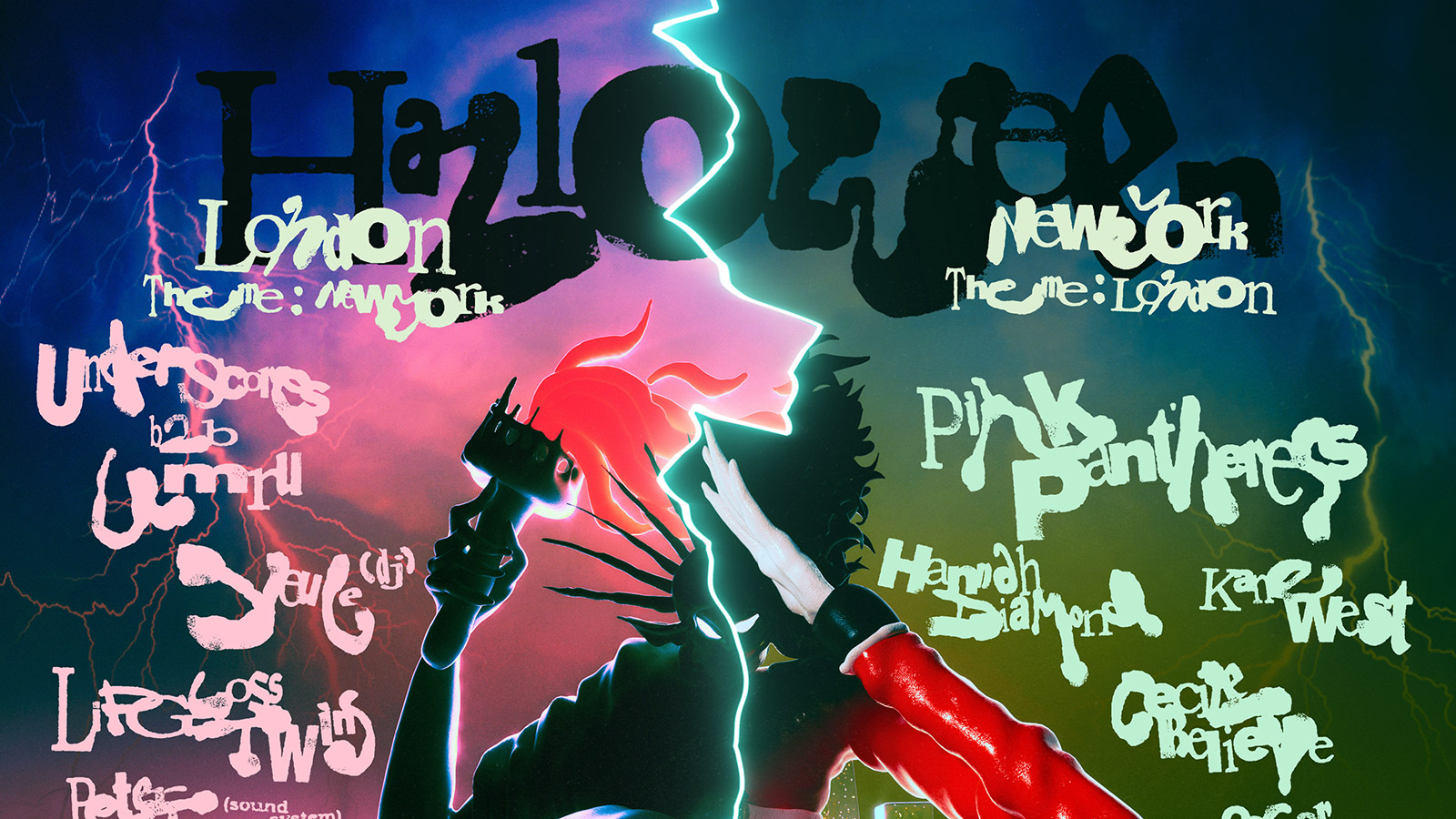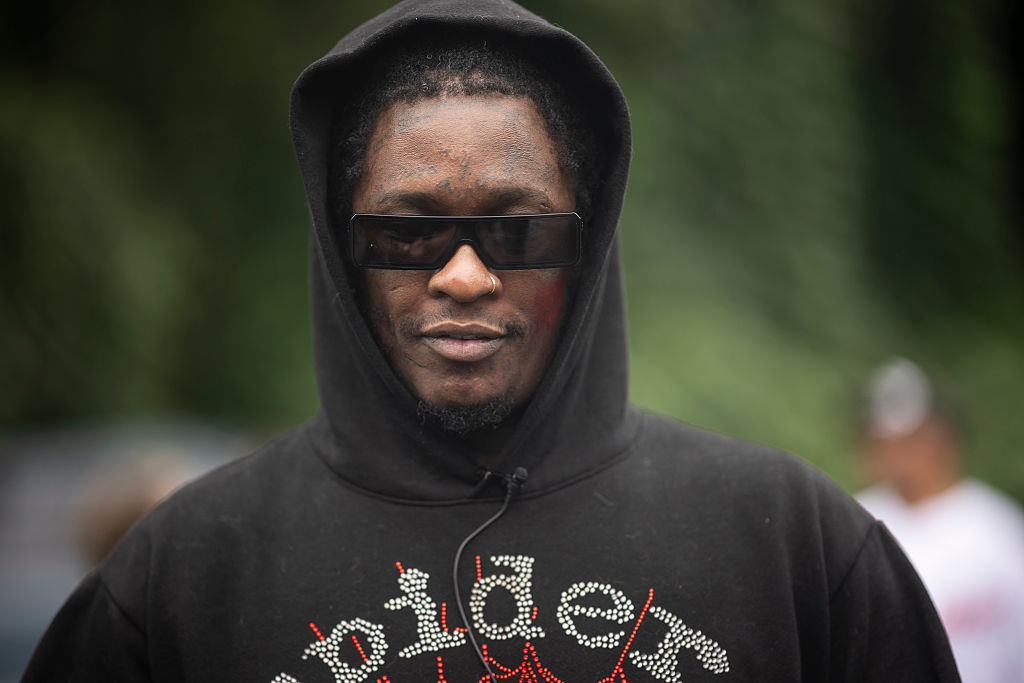
Original Photography by Stewart Baxter
Chartreuse have been honing their sound of whatever-genre-your-heart-desires-to-label-them-as for the better part of the last decade.
Early on a Friday morning, Mike Wagstaff (guitar and vocals), Rory Wagstaff (drums), Hattie Wilson (piano and vocals), and Perry Lovering (bass) are sitting in a row. It’s around 8:30am and everyone is very mellow, appearing no different from any photograph I’ve seen of the group: filtered in low light with a modest air to them.
Despite having been a band for over 10 years, Chartreuse only released their debut album in 2023 and now, their sophomore album Bless You & Be Well comes two years later. Themes of sincerity, reprise, and interconnectedness are dotted throughout the band’s history. Their connection, it seems, stems from a sort of “invisible string” pattern. Mike and Rory Wagstaff are brothers, Hattie Wilson and Rory were dating before the band formed, and Perry and Hattie are childhood friends.
What’s most apparent about Chartreuse from first impressions is their undeniable authenticity and, as a listener, it’s inherently endearing. They are impossibly humble perfectionists that hold themselves to incredibly high standards. With no specified lead singer or hierarchy within the band, there’s nothing superfluous in the music they write.
Get the Best Fit take on the week in music direct to your inbox every Friday
Being “Chartreuse” is just another facet of their already overlapping lives. “Whenever we’re together we talk about being in the band ‘cuz we don’t have that much time together. Like really; we have normal lives, normal jobs and all of that so even when we’re just hanging out at the pub, we’ll end up talking about stuff in the band,” explains Wilson.
Chartreuse’s backbone is their chemistry. Being so intimately connected in day-to-day life leads to a nuanced understanding of each other as band members, and it's easy to wonder if the sometimes ambiguous nature of their lyrics is a result of this delicate chemistry. Coincidentally, maintaining ambiguity isn’t much of a concern for the band, and whether it’s there or not, there is public resonance with their writing. No lead singer, no specific genre, no ulterior motives; making music together is the product of their intertwined lives and listeners connecting with it along the way. One could say Chartreuse exists simply because there is no other option.
For Chartreuse, formalities and typical structures are somewhat rejected. When it comes to the writing process, Mike explains that he rarely goes into a session with the intention to write about a specific subject. When he does, “it just sounds like the cringiest thing ever, it just doesn’t work.”
“I mean, you said this the other day when you started writing,” adds Lovering: “you realised half way through what you were actually writing about.” There’s this theme of ‘this is how it happened, but we didn’t exactly intend for that to happen’ with Chartreuse. Everything seems to come rather naturally, but lacks any of the ego that stereotypically comes with that kind of an explanation.

“We’ve always put ourselves down as ‘little old Chartreuse’” says Mike; in reference to something as common practice for musicians as bringing in an external producer. There’s a very British, self-deprecating sense to their view of themselves, their lives, and the band itself. It seems that Chartreuse is just one way this group of friends spend their time together, and it would be happening whether people witnessed it or not.
Their debut album however, recorded at the bottom of Mike’s garden and produced by him, blurred the lines between work and play. “It was just too much in the end,” he explains. “It was intertwining life and work a little too much, there was no separation.” This time around, the album they’ve produced was made differently: their first residency and their first time working with an external producer.
Their residency at Flóki Studios in Iceland is described by Lovering as “a pipe dream that suddenly came true.” A recommendation from their old booking agent led to some organising from their label and eventually had them isolated about a five hour drive from Reykjavik in July of last year, completely changing their modus operandi. The two week residency was illuminated by the Icelandic summer’s never-ending daylight, allowing for a renewed approach and a welcomed ability to lose track of time. And in addition to that, a fifth member so to speak, in the form of producer Sam Petts-Davies, known for his work with Frank Ocean and Radiohead.
Chartreuse are known for their anti-band attitude; something that Petts-Davies perhaps dispelled a bit for them. With the symbiotic nature of the band’s relationship, the group admitted to struggling with their own sound. “If anything sounded too band-y or too simple or too familiar, we were always like ‘oh it sounds rubbish we’ll have to add a load of weird stuff on top of it to make it sound interesting to us,’” explains Wilson.

They did the same when bringing songs to Petts-Davies, who confidently assured them that despite any anti-band rhetoric they may feel motivated by, they are in fact a band at the end of the day. “With this record especially, we just leaned into that,” says Wilson. “It was good to have someone else to tell us to do that because I think if we were left to ourselves again, we would’ve just put a load of random stuff on it.”
With that fear of being “too band-y” slightly soothed, it allowed for Mike to reprise his role full-time as a singer and guitarist. “I think I had more tangible ideas for songs because I wasn’t really thinking of anything other than the music.” When reflecting on their first album, he explains: “I was thinking about engineering it, I was up late editing everything that we’d done every day, but this time I had so much room to think because I had none of that to do, so I felt like I was so much more involved musically. It was freeing.”
That ability for all members to be present in the recording process as just musicians was more necessary than might seem to the outside eye. There was a heaviness amongst the band when recording began in Iceland. Lovering was grieving the death of his father, while Wilson had just received news that she’d be needing invasive surgery which would require her to relearn how to walk.
To hone in and embrace their connection was critical both as a band and as supports in each other’s lives, which resulted in an album that served as an outlet for personal expression from the band members to each other; and relatability for listeners without obscurity.
“You know in terms of the song “I’m Losing It”, that’s literally about me having my operation on my leg, which is very specific,” explains Wilson. “There’s not gonna be that many people who have had their femur broken, but I hope that they can listen to that and still feel that it’s helpful for them to heal, feel that they’re valid, and that their emotions are valid.”
Despite the theme of reprise littered throughout the band’s personal and professional history, they maintain that Bless You & Be Well is a separate entity from their debut, and not an album that picks up where the last leaves off.
“We kind of had it in our minds going into this – before Iceland, before we had a producer – that we wanted to make it all just one snapshot of time and have pretty much all new tracks except for one, which was ‘Bless You and Be Well’ actually,” explains Lovering about the title track, a song written 10 years prior and encouraged by Petts-Davis to be given a place on the album.
Bless You & Be Well is inspired and informed by the rawness of life’s varied experiences, but it doesn’t harp on them. Rather, it’s moving through feelings that are impermanent, that ebb and flow as time passes, and how the dynamic of the people surrounding you is an illuminating reminder of how the things that can seem so inconsequential are simultaneously all one may have at any given time.
Being in a band, doing residencies, writing and recording albums are not given; they require external effort and priority, and that’s not lost on Chartreuse; “We’re already talking about writing the next album to follow this one just because we love doing it, and we wanna make sure we can do it for as long as we can.”

 2 weeks ago
8
2 weeks ago
8




.jpg?mbid=social_retweet)













 English (US) ·
English (US) ·